
Into the Woods is a 1987 musical with music and lyrics by Stephen Sondheim and book by James Lapine.
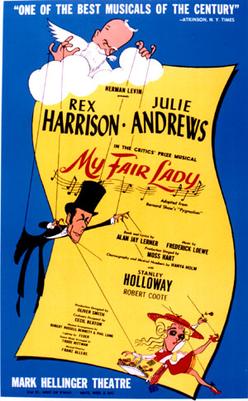
My Fair Lady is a musical based on George Bernard Shaw's 1913 play Pygmalion, with a book and lyrics by Alan Jay Lerner and music by Frederick Loewe. The story concerns Eliza Doolittle, a Cockney flower girl who takes speech lessons from professor Henry Higgins, a phonetician, so that she may pass as a lady. Despite his cynical nature and difficulty understanding women, Higgins grows attached to her.
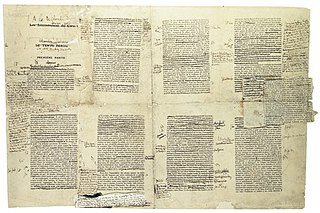
In Search of Lost Time, first translated into English as Remembrance of Things Past, and sometimes referred to in French as La Recherche, is a novel in seven volumes by French author Marcel Proust. This early 20th-century work is his most prominent, known both for its length and its theme of involuntary memory. The most famous example of this is the "episode of the madeleine", which occurs early in the first volume.

The Gambler is a short novel by Fyodor Dostoevsky about a young tutor in the employment of a formerly wealthy Russian general. The novel reflects Dostoevsky's own addiction to roulette, which was in more ways than one the inspiration for the book: Dostoevsky completed the novel in 1866 under a strict deadline to pay off gambling debts.

Maria Lea Carmen Imutan Salonga, known professionally as Lea Salonga, is a Filipina singer, actress, columnist, and producer. Dubbed the "Pride of the Philippines," she is best known for her roles in musical theatre, for supplying the singing voices of two Disney Princesses, and as a recording artist and television performer. Throughout her career, she has achieved numerous accolades and honors, becoming an internationally-recognized figure in music and entertainment.

Passion is a one-act musical, with music and lyrics by Stephen Sondheim and a book by James Lapine. The story was adapted from Ettore Scola's 1981 film Passione d'Amore, and its source material, Iginio Ugo Tarchetti's 1869 novel Fosca. Central themes include love, sex, obsession, illness, passion, beauty, power and manipulation. Passion is notable for being one of the few projects that Stephen Sondheim himself conceived, along with Sweeney Todd and Road Show.

Thomas James Tune is an American actor, dancer, singer, theatre director, producer, and choreographer. Over the course of his career, he has won ten Tony Awards, the National Medal of Arts, and a star on the Hollywood Walk of Fame.
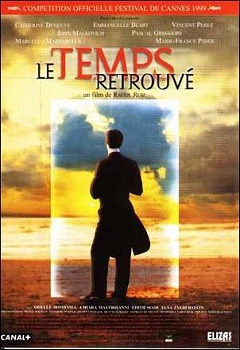
Time Regained is a 1999 French drama film directed by the Chilean filmmaker Raúl Ruiz. It is an adaptation of the 1927 final volume of the seven-volume series In Search of Lost Time by Marcel Proust. The plot is about the anonymous narrator of In Search of Lost Time who reflects on his past experiences while lying on his deathbed.
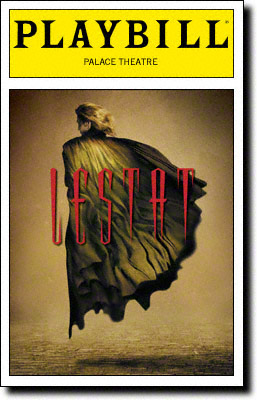
Lestat is a Broadway musical inspired by Anne Rice's The Vampire Chronicles. The score is by Elton John and Bernie Taupin, with the book by Linda Woolverton. The musical had a brief run on Broadway in 2006.

"White Nights" is a short story by Fyodor Dostoevsky, originally published in 1848, early in the writer's career.

Kelli Christine O'Hara is an American actress and singer, most known for her work on the Broadway and opera stages.
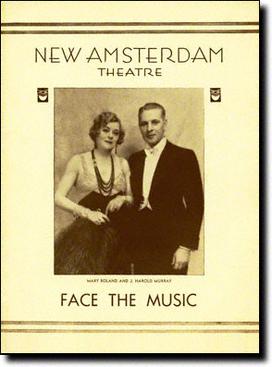
Face the Music is a musical, the first collaboration between Moss Hart (book) and Irving Berlin. Face the Music opened on Broadway in 1932, and has had several subsequent regional and New York stagings. The popular song "Let's Have Another Cup of Coffee" was introduced in the musical by J. Harold Murray.

Passing Strange is a comedy-drama rock musical about a young African American's journey of self-discovery as an artist, while combining strong existentialist and meta-fictional elements. The musical's lyrics and book are by Stew with music and orchestrations by Heidi Rodewald and Stew. It was created in collaboration with director Annie Dorsen.

A Tale of Two Cities is a musical with book, music and lyrics by Jill Santoriello based on the 1859 novel of the same name by Charles Dickens.
Susan Hilferty is an American costume designer for theatre, opera, and film.

Dreams of My Russian Summers is a French novel by Andrei Makine, originally published in 1995. It won two top French awards, the Prix Goncourt and the Prix Médicis. The novel is told from the first-person perspective and tells the fictional story of a boy's memories and experiences with his French grandmother in the Soviet Union in the 1960s and '70s.

La Captive is a 2000 drama film directed by Chantal Akerman and featuring Olivia Bonamy, Sylvie Testud and Stanislas Merhar.

Ragtime is a musical with music by Stephen Flaherty, lyrics by Lynn Ahrens, and a book by Terrence McNally. It is based on the 1975 novel of the same name by E.L. Doctorow.

Fun Home is a musical theatre adaptation of Alison Bechdel's 2006 graphic memoir of the same name, with music by Jeanine Tesori, and book and lyrics by Lisa Kron. The story concerns Bechdel's discovery of her own sexuality, her relationship with her closeted gay father, and her attempts to unlock the mysteries surrounding his life. It is the first Broadway musical with a lesbian protagonist. It is told in a series of non-linear vignettes connected by narration provided by the adult Alison character.

The Band's Visit is a stage musical with music and lyrics by David Yazbek and a book by Itamar Moses, based on the 2007 Israeli film of the same name. The musical opened on Broadway at the Ethel Barrymore Theatre in November 2017, after its off-Broadway premiere at the Atlantic Theater Company in December 2016.


















